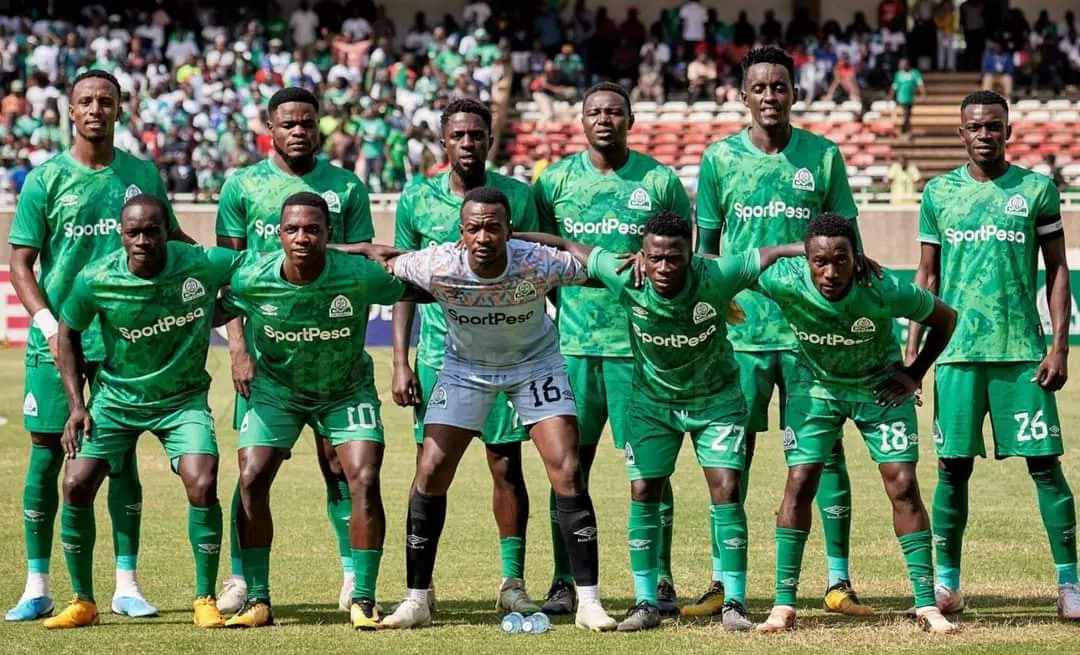Gor Mahia, one of Kenya’s most prestigious football clubs, is dealing with significant financial losses after failing to participate in the inaugural Coal City International Cup in Enugu, Nigeria, which began on Thursday. The club’s players, embroiled in an internal dispute, refused to travel to Nigeria as part of a go-slow protest. They are demanding a share of the prize money from their FKF Premier League victory and their participation in the CECAFA Kagame Cup.
Financial Implications of the Boycott
The club’s absence from the tournament has substantial financial ramifications. The eight-team competition was set to guarantee each participating team an appearance fee of N5 million (approximately Ksh478,000) per match. With each team playing at least three group stage matches, Gor Mahia was assured a minimum of N15 million (Ksh1.4 million). Had they won the tournament, the club could have earned up to Ksh6.6 million, considering the grand prize for the champion is N50 million (Ksh4.7 million).
Tournament spokesperson Ifeanyi Ogbu highlighted the financial incentives and broader economic impact of the event, stating, “The financial incentives are substantial, not only for the clubs but also for the state, which expects to generate approximately N3.5 billion (Ksh286 million) by the end of the tournament.”
Chairman’s Statement
Gor Mahia’s chairman, Ambrose Rachier, had previously emphasized the financial benefits of participating in the tournament. He stated, “We shall be eight teams in total, and for every match we play, the club will benefit from a USD 5,000 appearance prize money. The organizers will also cater for air travel and accommodation. There will also be other winning bonuses.” Rachier’s comments underscore the missed opportunity for significant financial gains and the associated benefits of participating in international competitions.
Internal Disputes and Disciplinary Measures
The ongoing internal disputes have forced the club to take disciplinary measures. The players’ refusal to travel has not only led to financial losses but also highlighted the challenges within the club. The management has initiated disciplinary actions to address the unrest, hoping to resolve the issues and restore harmony within the team.
The internal conflict arose as the players demanded a fair share of the prize money earned from their recent successes. This dispute has cast a shadow over the club’s preparations and has negatively impacted its international standing. Missing the Coal City International Cup is a significant setback, both financially and in terms of competitive exposure.
Competitive Impact
Gor Mahia’s absence from the Coal City International Cup also means missing out on valuable competitive experience. The tournament offered a platform to compete against international teams, which would have been crucial for the players’ development and the club’s reputation. The missed opportunity to face teams like Brazilian club Corinthians and others is a loss that extends beyond just the financial aspect.
Future Implications
The situation at Gor Mahia serves as a reminder of the importance of internal cohesion and proper management within sports clubs. The financial and competitive losses from missing the Coal City International Cup could have long-term implications for the club’s performance and reputation. It is essential for the club to address these internal conflicts promptly and effectively to avoid further setbacks.
Moving Forward
Gor Mahia’s management must now focus on resolving the disputes and rebuilding trust within the team. Ensuring transparent communication and fair distribution of earnings can help in mending the strained relationships. Additionally, the club needs to strategize on how to regain its competitive edge and financial stability.
Conclusion
Gor Mahia’s failure to participate in the Coal City International Cup highlights the significant impact of internal conflicts on a club’s financial health and competitive standing. The club’s management must prioritize resolving these issues to prevent future disruptions and to ensure the team can capitalize on similar opportunities moving forward. The episode underscores the delicate balance required in managing player expectations and the financial operations of a sports club. By addressing these challenges, Gor Mahia can hope to restore its position as a leading force in Kenyan and international football.


